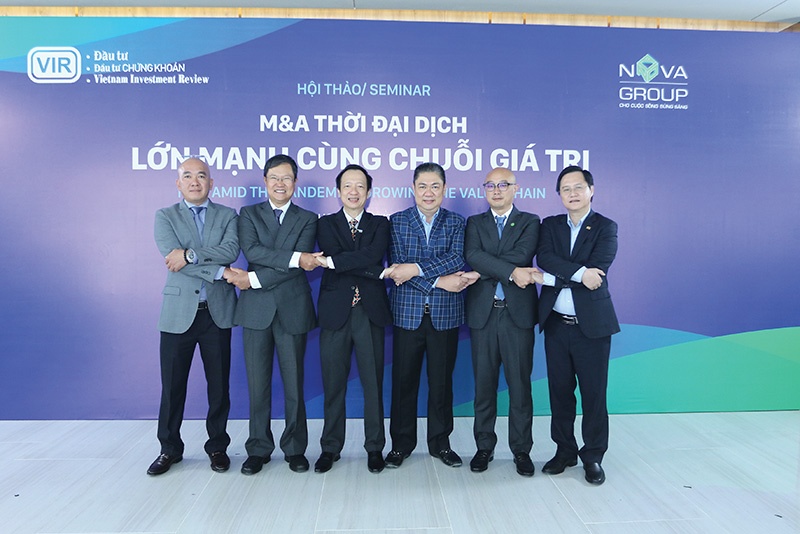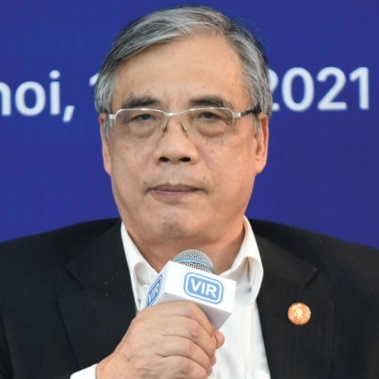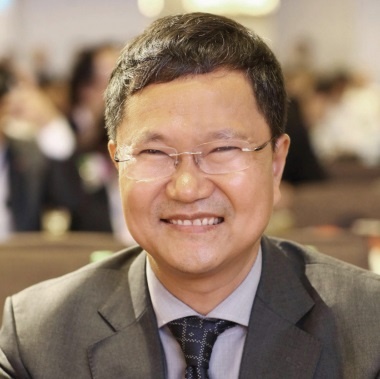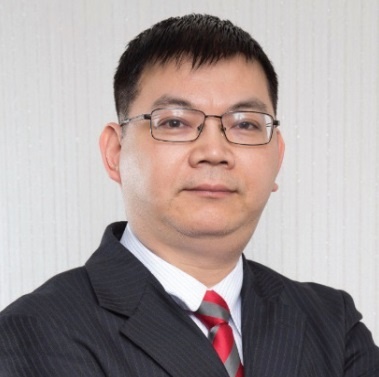Cash-rich domestic players making waves in M&A arena
 |
| Keynote speakers at the Ho Chi Minh City portion of VIR’s latest M&A seminar. Photo: Le Toan |
According to Phan Duc Hieu, permanent member of the National Assembly Economic Committee, Vietnamese acquirers accounted for only 18 per cent in 2018, but that rate in the following two years surged to 30 per cent – and in the first quarter of 2021, around 49 per cent of buyers were Vietnamese enterprises.
“Last year, there were some rumours around proposals to halt merger and acquisition (M&A) deals involving foreign buyers to protect domestic companies from being acquired cheaply. However, the figures show an increasing trend of Vietnamese companies acquiring other domestic peers. This clearly illustrates a significant rise of cash-rich home players,” Hieu explained at a virtual M&A seminar last week hosted by Vietnam Investment Review.
Particularly, Hieu noted, horizontal M&As in the same industry account for 45 per cent of recent deals, while nearly 20 per cent are vertical mergers (M&As in the same market but at different stages of production) and around 30 per cent are mixed transactions.
Rising M&A momentum is pointing to a fundamentally strong market looking ahead and the pace of dealmaking could continue for the coming time, Hieu added, with new financing solutions and sectors driving activity.
Le Khanh Lam, chairman of RSM Vietnam, said at the seminar that the pandemic has caused major impacts in remote working and travel restrictions. “Thus, we have all had to adapt swiftly to a totally virtual work environment, even for negotiations or deal execution,” he said.
In the same vein, Nguyen Cong Ai, partner at KPMG Vietnam, revealed that it had conducted several major cross-border deals in an entirely virtual workspace.
“Some major Vietnamese conglomerates have ramped up their presence through M&A in overseas markets. For example, last month, Masan took over mobile virtual network operator Mobicast with its Reddi brand as the first step to expand into digital services, while VinFast is stepping up overseas investment to realise its global ambition. This is the strongest response from Vietnamese forces, as combined companies would considerably leverage each other’s resources,” Ai added.
“From our experience, some essential substance must be considered in a deal’s execution, including financial capacity, efficiency, objectives, and cultural harmony”.
M&A poster child
At the seminar, Le Trong Minh, editor-in-chief of VIR, also said, “Strategic and financial investors are now able to take advantage of new opportunities, either in the form of distressed M&As or strategic partnerships and combinations,” he said. “Notably, the pattern is shifting towards a positive signal, with hostile takeovers seemingly on the decrease and friendly M&As rising in our country.”
Lam of RSM Vietnam assessed that two-thirds of takeover deals currently bear fruit, with the remainder falling by the wayside.
“The consequences of deal abandonment can be severe, affecting both sides. This stems from a lack of transparency, cultural clashes, or legal barriers,” Lam explained. “In Vietnam, many business leaders might not be fully equipped with the organisational cultural assessment, which in turn creates a mismatch in operation and poses various challenges.”
Understanding its M&A capacity, NovaGroup has successfully transformed its approach to value creation and strengthened its merger muscles.
The company is continuing to write its own story with multiple best-in-class offerings in Vietnam. It currently boasts the three main pillars of Novaland in real estate, Nova Service Group in trade and services, and Nova Consumer Group, specialising in agriculture and consumer goods.
Novaland CEO Bui Xuan Huy said at the seminar, “As a crucial part of NovaGroup, Novaland continues to laser focus on acquiring high-valued and large-scale locations in provinces and cities with vast potential in tourism. Novaland has one or two cards up its sleeve thanks to the ability to increase land funds – especially prime locations. Furthermore, a synchronised transport infrastructure enhances our logistical capacity.”
Nguyen Nhu Xuan Trang, CEO of Nova Service Group also shared, “Thanks to M&A, we will have abundant human resources and extensive expertise. We are confident to say our target companies will have more ample room to double or even triple their scale after our involvement.”
Nova Consumer Group, meanwhile, was built on a solid foundation stemming from the Anova Corp brand, which has been firmly established and developed in agriculture for the last three decades.
Ton That De, CEO of Nova Consumer Group, said that the company has thoroughly prepared a 5-year plan to gain an upper hand in the agricultural and consumer segments.
“With our experience of already mastering the agricultural sector, this is our strength to move into the larger consumer sector. In that process, we can develop human resources and prepare capital investment to develop sectors, including agriculture and consumption, to complete our chain,” De said. “Besides that, we are focusing on research and development activities to roll out best-in-class products. Cooperation and M&A deals will help us complete this 5-year plan.”
NovaGroup will focus on its M&A strategy to build its business community, creating value-added chains and integrating into the global market. For the real estate sector, Novaland aims to develop 50 urban areas in 30 provinces with large tourism potential.
Keen dealmaking
Vu Huu Dien, director of Investment Advisory at Dragon Capital, applauded NovaGroup’s financial background, boosted by a team rich in experience.
“Dragon Capital was a trusted and long-standing partner of NovaGroup in the pre-initial public offering period. After six years of listing, NovaGroup’s stock value has surged significantly, mirroring the group’s sound financial background and integration strategy,” Dien said.
The outbreak has further accelerated the digitalisation and consolidation trend, Dien added. “In the long run, we believe Asian investors could make attempts to turn the crisis into lucrative opportunities, especially those from South Korea, Japan, Singapore, and Thailand. Thanks to similar organisational culture, these investors often find an efficient and clear path to competitive, long-lasting M&A success.”
Market watchdogs noted that currently, popular areas for dealmaking include real estate, financial services, education, and consumer goods. Moreover, telecommunications, green energy, pharma, and environmentally-friendly industries would fly high in investing agendas.
“Transparency and professionalism are of paramount importance. In our view, those who devote considerable resources to enhancing their international standards will stay competitive and ensure sustainable growth,” said Lam of RSM.
Deputy CEO at NovaGroup Nguyen Thai Phien stated that the pandemic is just a turning point on the track and an ideal time for big businesses to get ahead. “Small- and medium-sized enterprises (SMEs) may need to change their strategies and even their core business to survive,” Phien said. “M&As are a good solution for businesses to overcome difficulties together, and Vietnamese enterprises also have to move toward digitalisation and modernisation, creating a driving force for the economy.”
Phien added that NovaGroup is prepared in all aspects to implement investment and development plans through M&As.
“We have a transparent and clear governance structure, separating all subsidiaries and investing heavily in technology and other related issues,” Phien told VIR. “The Vietnamese market has large enterprises leading the market, supported by millions of SMEs. Vietnamese businesses are grasping this market, and many are turning the pandemic situation around to synergise their strength to co-develop.”
| Phan Duc Hieu - Permanent member, National Assembly Economic Committee
In Vietnam, several local groups have stepped up their M&A strategies but foreign investors still dominate the game. In 2020, the M&A market slowed down due to the pandemic with the total value reaching $3.5 billion. Key sectors for M&A remain real estate, finance and banking, technology, logistics, and pharmaceuticals. In particular, the real estate industry accounts for more than 40 per cent of the deals. Although the service sector was hit hard by the COVID-19 pandemic, it still makes up for 18 per cent of all transactions. Companies are increasingly conducting M&A to build value chains. Horizontal M&A deals involving enterprises in the same market account for 45 per cent of transactions. This reflects the efforts of businesses to push forward with restructuring. | |
| Tran Dinh Thien - Former director, Vietnam Economics Institute
M&A deals can help businesses restructure their operations and become stronger. This would not only change businesses themselves but also improve the image of Vietnamese enterprises and the country in the long run. I think this is the right time to clean up the market after the COVID-19 storm. Despite the great opportunities, there are still two problems hampering deal-making. Firstly, we need to change conditions and remove regulatory barriers for business. The second challenge is that businesses should find the most effective way to carry out M&A based on analyses of trends. This would enable domestic enterprises to reduce reliance on international partners. We need to discuss speeding up the M&A process to help weak businesses as well as bolster the economy after the pandemic. | |
| Le Khanh Lam - Chairman, RSM Vietnam
All sides must have a proper approach to M&A and a well-prepared, detailed plan before entering negotiations. Preparation is crucial for both sides. During the deal, the two sides must be honest and transparent. Buyers usually have experience in dealing when sellers do not. Sellers, therefore, sometimes do not fully understand arising problems or how to solve them. During an M&A, parties must show goodwill and a desire to succeed. Enterprises need to train human resources to handle arising situations and problems. In the next five years, South Korea, Japan, Thailand, and Singapore will remain the most active M&A actors in the Vietnamese market. The leading sectors will be real estate, retail, manufacturing, banking and finance, telecommunications, pharmaceuticals, green energy, education, and healthcare. | |
| Nguyen Cong Ai - Partner and head of Strategy, KPMG Vietnam
As things are looking up, foreign buyers have recently started to step up M&A activities. Since the end of 2020, the value of transactions has increased significantly. In particular, in the first six months of 2021, global M&A activity recorded record growth on the back of the strong US economic recovery. In Vietnam, we have successfully carried out big M&A deals through online platforms. We expect the M&A market can reach a growth rate of 100 per cent on-year in 2021. In the past, around 70 per cent of M&A deals were conducted by foreign investors. I believe foreign investors will continue to play a major role in 2022 as they recently expressed more interest in Vietnamese enterprises with good growth potential. The real estate, finance-banking, and education sectors are capturing most attention. | |
| Pham Van Thinh - Managing partner and CEO, Deloitte Vietnam
Vietnamese enterprises have recently been preparing carefully for M&A deals. Some companies have even hired professional consultants to support their strategy. This energetic attitude has created significant value for businesses in attracting investors. M&A is now not only to mobilise capital but also to choose the right partner for co-development. COVID-19 has negatively affected the economy and reduced M&A dealmaking, too. However, Vietnam is still a bright spot. Despite travel restrictions, we believe that with the attractiveness of the domestic market, M&A dealmaking will swiftly regain its momentum. Consumption, energy, education and infrastructure investment will attract many M&A deals in the coming time. In addition, businesses that use technology in their business activities will attract investment capital through M&A. | |
| Su Ngoc Khuong - Senior director, Savills Vietnam
It is not simple to choose the right partners and create added values for each other – it requires very careful selection by both parties. Transparency is crucial for any M&A deal. The parties are creating a common value chain, not deleting each other. Novaland’s M&A strategy is a clear demonstration of this, and many other businesses are also creating integrated value chains. Choosing the right partners for M&A to co-create added values is a challenge everywhere. Company culture and human resources are extremely important in this respect and have far-reaching implications post-M&A. The value added by M&A has elevated many Vietnamese enterprises and in their M&A strategies, Vietnamese businesses need to pursue the creation of value for society and enterprises themselves. | |
| Le Song Lai - Deputy general director, State Capital Investment Corporation
The M&A market has been on a downtrend trend since 2018, when transaction value hit $7.54 billion, down 44 per cent compared to the previous year. In 2019, the figure stood at $7.2 billion. The pandemic dampened the value further last year, to only $3.5 billion. One of the factors that affects the M&A market is the slow progress of equitisation and divestment of state-owned enterprises. For 2021-2025, SCIC plans to divest from 130 out of 148 such enterprises, and only retain long-term capital in the others. These businesses operate in many fields in line with the versatile demand of domestic and foreign investors. Foreign investors who want to buy shares from SCIC do not need to go through special review procedures. This is quite a favourable condition for foreign investors who are looking for securing M&A deals in Vietnam. | |
| Vu Huu Dien - Director of Investment Advisory, Dragon Capital Vietnam
Both parties to an M&A must have the same vision and understand each other’s strategies. Business owners with an excellent corporate governance plan are worthy of being targeted. Investment in M&A requires substantial finances to transfer investments. Thus, it is essential for companies to go public. There have been stories of M&A deals succeeding or going bad, but overall, M&A makes enterprises stronger. A common development strategy is crucial to ensure a successful deal for buyers, sellers and other stakeholders. When considering a deal, reliability and transparency of information are important. It is essential to integrate the companies’ cultures and human resources. At least two-thirds of M&A deals in the market have been successful due to the correct assessment of advantages and disadvantages of the two sides. | |
| Nguyen Thanh Phuong - Investment director, Novaland
M&A is not simply purchasing and selling or merging an enterprise or a project, it is a cooperation between the parties. All sides must work closely together to create a new entity that meets their needs of governance and development. To achieve that purpose, enterprises need to determine the M&A target with a vision of 3-5 years post-transaction. A transaction will not be enough if it is based only on property value or real estate value. In addition, the exchanges and agreements between two parties during the execution of an M&A transaction are the foundation for a successful deal. Particularly for deals in real estate, successful transactions must identify the right businesses and targets. This depends on the sector of operation, project location, or product structure, as well as the organisational structure and company culture. | |
| Alex Crane - Managing director, Crane & Co Real Estate Consulting
The main advantages looking outward from Vietnam is access to, and lower cost of capital and credit. A good foreign partner may in addition have wider capability or insight into trends, segments, or ideas that might soon be relevant to our local market. To harmonise arising problems post-M&A, it is necessary to take all the pain in due diligence. Agreements must be watertight and achievable goals must be understood. There is a balance to be found while not rushing in to implement changes aggressively yet managing that change efficiently around the key agreed structure. Most deals fail because of either time constraints or because certain information is unclear. In my experience, getting to a “no” is better than hanging onto an unclear deal and just hoping it will go through. Over-prepare, present well, be realistic, and if the partner does not feel right, move on; there will be others. |
What the stars mean:
★ Poor ★ ★ Promising ★★★ Good ★★★★ Very good ★★★★★ Exceptional
Related Contents
Latest News
More News
- Marico buys 75 per cent of Vietnam skincare startup Skinetiq (February 10, 2026 | 14:44)
- Mitsubishi acquires Thuan An 1 residential development from PDR (February 09, 2026 | 08:00)
- KKR and Singtel step up data centre investment in Southeast Asia (February 06, 2026 | 13:09)
- New rules ease foreign access to Vietnam equities (February 05, 2026 | 17:29)
- Vietnam’s IFC creates bigger stage for M&As (February 01, 2026 | 08:16)
- Game startup Panthera raises $1.5 million in seed funding (January 29, 2026 | 15:13)
- Cool Japan Fund transfers shares of CLK Cold Storage (January 28, 2026 | 17:16)
- Nissha acquires majority stake in Vietnam medical device maker (January 26, 2026 | 15:40)
- BJC to spend $723 million acquiring MM Mega Market Vietnam (January 22, 2026 | 20:29)
- NamiTech raises $4 million in funding (January 20, 2026 | 16:33)











 Tag:
Tag:




















 Mobile Version
Mobile Version